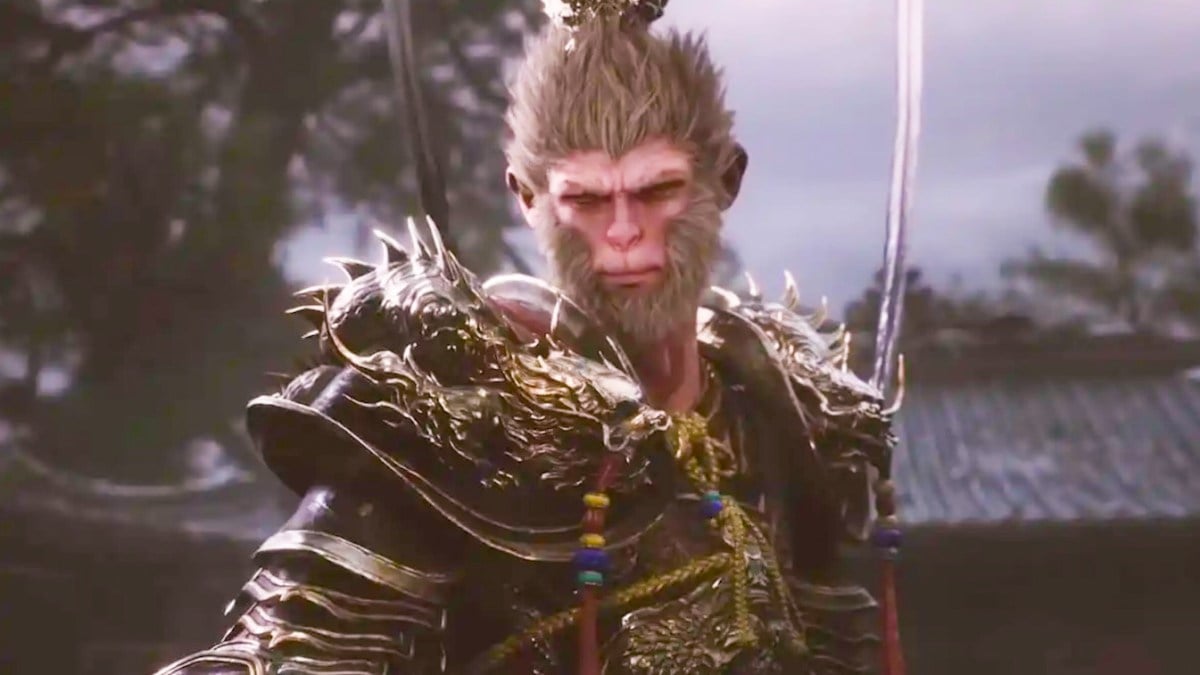After a long wait, the much anticipated action RPG, Black Myth: Wukong released to overwhelmingly positive reviews, which isn’t exactly a surprise – even before its release, gamers could just tell this game was going to slap. However, the fanfare has been somewhat overshadowed by the actions of the studio that created it.
It seems all anyone is talking about this week is Black Myth: Wukong, the game that has dominated discussion online and saw 2.2 million peak concurrent users (PCCU) within the first 24 hours of its release on Steam. According to an article from Nikopartners.com, that makes it the most popular game (by PCCU) of all time! That’s pretty impressive coming from an indie studio like Game Science, a company which had only made mobile games up until now.
Going by the hype leading up to its release, it’s no surprise. The announcement trailer, which dropped way back in 2020, received 2 million views on YouTube and 10 million on the Chinese video-streaming site Bilibili within a day. The 13-minute long trailer was praised for the cinematic visuals and awesome combat scenes, blend that together with some high fantasy and a pinch of “souls-like” gameplay and you’ve got a recipe for a winning AAA video game.
While all might seem well on the surface, behind the scenes of the game studio itself, things were far from well. In the lead up to the release of Black Myth: Wukong, fans would stumble across statements and comments from those working for the company, and even its founders, that suggested many within Game Science held deeply misogynistic beliefs. It’s a similar situation to the Stellar Blade controversy, which occurred earlier this year.
The Game Science controversy
Perhaps it’s best to go back to the beginning of the indie studio, or maybe even a little further back than that. The studio was co-founded by game developer Feng Ji, a former dev at Tencent Games who left to create his own studio along with a handful of other employees. When talking about the art of game development, Feng has a pretty peculiar way of wording things, to put it lightly.
Back in 2007, Feng wrote an article in which he talked about the difficulties of game development, and likened failed projects to stillborn babies. A pretty weird, not to mention insensitive comparison to make, but it wasn’t really given much attention at the time. His comments after the initial trailer for Black Myth: Wukong were even more crude. According to an article from IGN which looked into the whole controversy, Feng wrote “I want to expand my circle and hire more people, get licked until I can’t get an erection.”
There were more remarks like this peppered throughout the developer’s statement, and while many were willing to shrug it off, not everyone felt the same. IGN spoke to women in the industry who feel the studio didn’t do enough to address Feng’s language.
“The company never really addressed the critiques directly. I know that they probably removed some of the stuff that they previously posted, but they never apologized or never acknowledged that.”
This wasn’t just a problem with the studio’s co-founder, however; the rampant misogyny on display seemed to be ingrained in the company as a whole. In 2015, recruitment posters were published with suggestive images of women featured on them. They also implied that “friends with benefits” was a perk of working in the office. In another instance, lead artist and co-founder Yang-Qi remarked that men and women want different things from games due to “biological conditions.” He then went on to make the most clichéd statement imaginable by saying men dream of holding heavy machine guns, while women dream about handbags that make their friends jealous.
These are just a couple of examples that demonstrate the kind of locker room talk that would make Donald Trump blush. In yet another example, a technical artist for the studio talked about masturbating to one of the female characters in the game. It seems many working for the studio have a real issue with how they talk about the opposite sex, and people can write it off as harmless banter all they want, but the fact is it makes the industry an unsafe space for women.
Has Game Science addressed the issue?
Rather than tackle this serious problem head on and prove to the world that it actually cares about equality, Game Science has elected to try and bury the controversy. The studio has refused to comment on the topic when asked, the only response a journalist from PC Gamer was able to get was “no comment.”
However, Game Science have gone one step further in trying to bury the drama by making streamers promise not to talk about “feminist propaganda” or politics when playing the game. According to an article from The Gamer, a document was released to streamers containing a list of do’s and don’ts. If a studio feels the need to try and control what people can and can’t say about their game, then they surely know they’ve messed up.











Published: Aug 22, 2024 12:27 pm